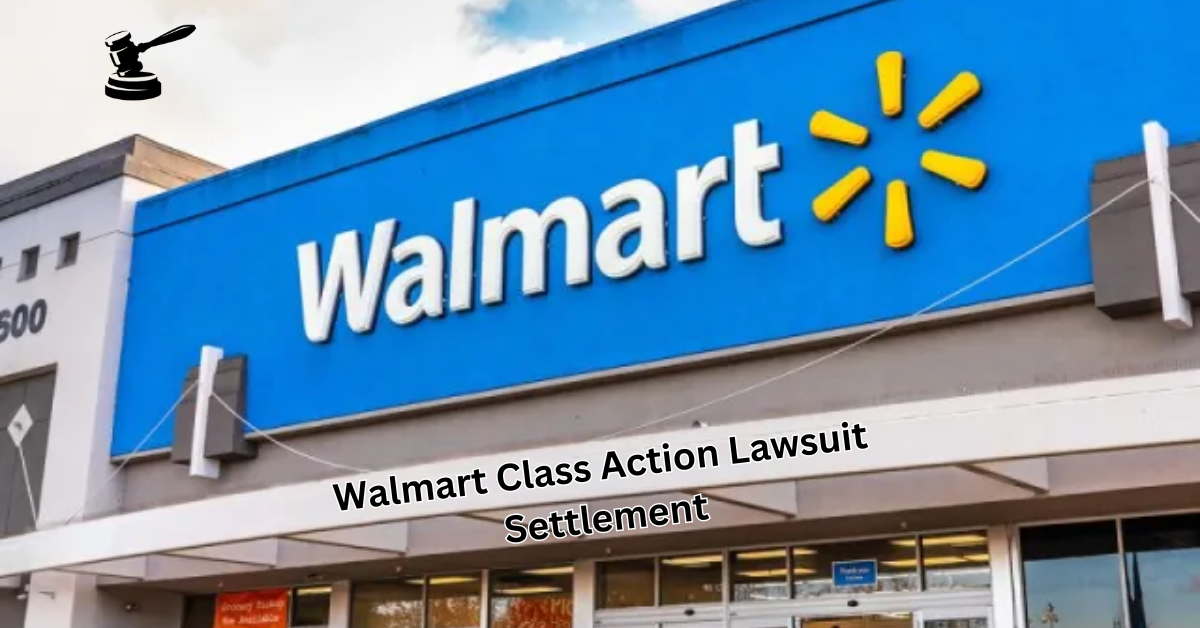Learn about the Walmart class action lawsuit settlement, eligibility criteria, claims process, and how to potentially receive a share of the $45 million settlement. Stay informed about consumer rights and legal developments.
Introduction
In recent news, retail giant Walmart has been at the center of a class-action lawsuit alleging overpricing of certain items. The lawsuit, which covers purchases made between Oct. 19, 2018, and Jan. 19, 2024, has led to a proposed settlement of $45 million. This development has garnered significant attention from consumers who may be eligible to file a claim and receive compensation. In this blog post, we’ll delve into the details of the Walmart class action lawsuit settlement, including eligibility requirements, the claims process, and what consumers should know moving forward.
Understanding the Allegations
The crux of the class-action lawsuit against Walmart revolves around claims of overpricing certain items. Specifically, the lawsuit alleges that Walmart engaged in deceptive pricing practices related to “weighted goods” and “bagged citrus.” Weighted goods typically refer to products sold by weight, such as fruits, vegetables, and meats, while bagged citrus specifically targets items like oranges, lemons, and grapefruits sold in pre-packaged bags. The allegations suggest that Walmart artificially inflated prices or misrepresented product weights, leading to overcharges for consumers.
Who Is Eligible to File a Claim?
If you made purchases of weighted goods or bagged citrus from Walmart between Oct. 19, 2018, and Jan. 19, 2024, you may be eligible to participate in the class-action lawsuit settlement. Eligibility criteria typically include being a resident of the United States and having documentation or proof of purchase for the relevant items during the specified timeframe. It’s important to note that eligibility requirements may vary, so individuals should carefully review the official settlement details to determine if they qualify.
How to File a Claim
Filing a claim as part of the Walmart class action lawsuit settlement is a relatively straightforward process. Once eligibility is confirmed, consumers can typically submit their claims online through a designated portal or by mail using the provided claim forms. Required documentation may include receipts, transaction records, or other proof of purchase to validate the claim. It’s essential to follow the instructions outlined in the settlement agreement and provide accurate information to ensure timely processing of claims.
Potential Compensation
As part of the $45 million settlement, eligible claimants may receive a share of the settlement fund based on their documented purchases of weighted goods or bagged citrus from Walmart during the specified period. The exact amount of compensation for individual claimants will depend on various factors, including the total number of valid claims filed and the distribution method outlined in the settlement agreement. While specific compensation amounts may vary, participating in the settlement offers consumers an opportunity to recoup potential overcharges.
Timeline for Participation
The timeline for participating in the Walmart class action lawsuit settlement typically includes several key dates and deadlines. This timeline may encompass the period for filing claims, the review and approval process, the distribution of settlement funds, and any related appeals or finalization of the settlement agreement. It’s crucial for eligible consumers to stay informed about these deadlines and comply with all requirements to ensure their claims are considered valid and processed accordingly.

Legal Implications and Consumer Rights
Class-action lawsuits like the one against Walmart highlight the importance of consumer rights and legal recourse in addressing alleged misconduct or deceptive practices by corporations. By participating in such settlements, consumers assert their rights to fair pricing, transparency, and accountability from businesses. These legal proceedings also serve as a deterrent against future instances of similar conduct, reinforcing ethical standards and consumer protections within the marketplace.
Transparency and Corporate Accountability
The Walmart class action lawsuit settlement underscores the significance of transparency and corporate accountability in retail operations. Businesses are expected to uphold integrity in pricing practices, product labeling, and customer interactions. Settlements resulting from legal actions can prompt companies to review and improve their policies, compliance measures, and communication with consumers. This transparency benefits both businesses and consumers by fostering trust, fairness, and ethical business conduct.
Consumer Awareness and Education
One of the positive outcomes of high-profile class-action lawsuits is the increased awareness and education among consumers regarding their rights and recourse options. These legal proceedings often prompt discussions about consumer protection laws, fair trade practices, and the importance of vigilant consumer advocacy. Educated consumers are empowered to make informed decisions, demand accountability from businesses, and contribute to a more equitable marketplace for all.
Role of Legal Counsel and Advocacy
Navigating a class-action lawsuit settlement, such as the one involving Walmart, may benefit from legal counsel or advocacy services. Legal professionals specializing in consumer rights and class-action litigation can provide valuable guidance, representation, and support throughout the claims process. They can help individuals understand their rights, assess eligibility, gather necessary documentation, and advocate for fair compensation on behalf of consumers.
Ongoing Monitoring and Compliance
Following the resolution of the Walmart class action lawsuit settlement, ongoing monitoring and compliance measures are typically implemented to ensure adherence to the terms and conditions outlined in the settlement agreement. This may involve regular audits, reporting requirements, and oversight mechanisms to verify that Walmart and other parties fulfill their obligations, such as distributing settlement funds to eligible claimants in a timely manner.
Impact on Consumer Trust and Reputation
The outcome of class-action lawsuits can significantly impact consumer trust and corporate reputation. For businesses like Walmart, maintaining a positive public image involves transparency, accountability, and responsiveness to consumer concerns. Resolving legal disputes through fair and equitable settlements demonstrates a commitment to addressing grievances and upholding ethical standards, which can enhance trust and loyalty among customers.
Lessons Learned and Industry Insights
Class-action lawsuits often yield valuable lessons and industry insights for businesses, regulators, and consumers alike. These legal proceedings highlight emerging trends, regulatory gaps, and areas of focus for improving consumer protections and market practices. Stakeholders can use these insights to advocate for policy reforms, industry standards, and responsible business practices that benefit both businesses and consumers in the long term.
Staying Informed and Engaged
As the Walmart class action lawsuit settlement progresses, staying informed and engaged is crucial for affected consumers. Monitoring official communications, updates from legal authorities, and reputable news sources can provide valuable information about key developments, deadlines, and outcomes related to the settlement. Additionally, engaging with consumer advocacy groups, legal experts, or community forums can offer support, resources, and insights for navigating the settlement process effectively.
Conclusion
The Walmart class action lawsuit settlement represents a significant legal development in consumer rights and corporate accountability. Eligible consumers have the opportunity to participate in the settlement and potentially receive compensation for alleged overpricing of weighted goods and bagged citrus. By understanding the eligibility criteria, claims process, and implications of the settlement, consumers can assert their rights, seek fair resolution, and contribute to a more transparent and ethical marketplace.
Read also: white oak global advisors lawsuit A Breach of Trust for New York Nurses?

